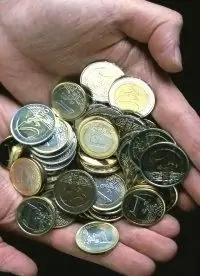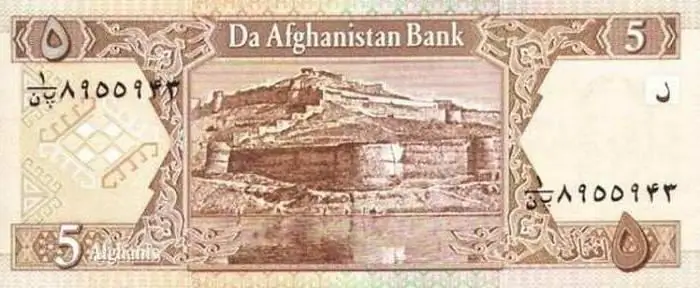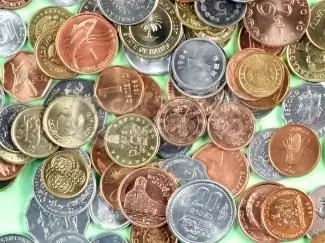2026 Author: Howard Calhoun | calhoun@techconfronts.com. Last modified: 2025-01-24 13:10:25
Nigeria's currency is called the naira. It is little known to anyone, it is difficult to find it at currency exchange offices next to the euro, dollar, yen, won, lira and ruble. Although the country is African, it is promising, it is a major oil producer. It is useful to know the features of Nigerian money for those who are going to visit this country.

History of currency and course features
This is a young state, so the first years of independence from Great Britain, the currency there was the Nigerian pound. In 1973, the naira became the currency of Nigeria. Then 2 naira were worth one British pound. The currency name of Nigeria is a shortened version of the name of the country.
If the ruble is divided into kopecks, then the naira is divided into kobo. This name comes from the local pronunciation of the English word "copper" (cooper).
Due to the specifics of the country's economy, the exchange rate was unstable, it depended on fluctuations in oil prices and other factors.
As of April 2019, the Russian ruble is equal to 5.6 naira. Which roughly corresponds to the exchange rate of the Russian ruble against the tenge of Kazakhstan.
Ifcompared with 2000, the exchange rate of the naira against the ruble has not changed.
One US dollar is now equal to 360 naira.

Appearance of banknotes and coins
Today, Nigeria's currency consists of eight banknotes of different denominations and three coins of 50 kobo, 1 and 2 naira.
The coat of arms of the country is depicted on the reverse, and the images on the obverse are as follows:
- A cob of corn.
- Herbert Macaulay is a national leader, engineer and journalist.
- National Assembly Building.
The front side of the 50 naira banknote depicts the inhabitants of the country. And on the rest - images of her political figures, which are little known, for example, in Russia.
The 5 naira banknote depicts the first Prime Minister, Alhaji Baleva. And on the banknote of 500 naira - the first president of the country.
The reverse sides of the bills contain the following images:
- Zuma Rock. One of the natural symbols of the country.
- The building of the central bank in the capital. It is drawn on the largest bill of 1000 naira, which corresponds to 5500 rubles.
- Images of various sectors of the country's economy: oil production on an offshore platform, fishermen, herders, potters, as well as drummers and women carrying vessels on their heads.

Prices in Nigeria
The currency of Nigeria in Russia is difficult to find, except in the capital to exchange with embassy staff or in the exchange office of rare currencies in the world. Therefore, for the trip you need to take dollars or euros with you and change them fornaira in banks.
Prices for many things in Nigeria may be similar to Russian:
- A small bottle of water will cost 80 naira, or 15 rubles, and a 1.5-liter bottle will cost twice as much.
- Local bread - 360 naira for 0.5 kg.
- 10 eggs - 500 naira
- Bananas, tomatoes, oranges, potatoes, apples - from 600 to 800 naira.
- Onions or cucumbers - 350 naira per kilo.
- A liter of gasoline - 150 naira.
- Average salary after taxes is 350k naira, but the question is how they calculate it.
- Lunch at the canteen - from 650 naira
- Lunch at a restaurant - from 10 thousand naira.
One-way flight from Moscow to Lagos costs from 20 thousand rubles. There can be 1 or 2 transfers, for example in Addis Ababa and Abu Dhabi.
What else can the Nigerian currency be used for? Given the low rate of banknotes (5 naira for 1 ruble), they can be collected and exchanged in other countries, but not at official currency exchange offices, but with people who want to receive a rare banknote in exchange, for example, for 1 yuan or a ringgit.
Recommended:
Currency borrowers. All-Russian movement of foreign currency borrowers

At the end of last year, an all-Russian movement of foreign currency mortgage borrowers was formed. This was due to the sharp devaluation of the ruble, which made it almost impossible to service loans of this type
The currency of Finland. History, appearance, currency exchange rate

In this article, the reader will get acquainted with the currency of Finland, its history, appearance, and some other characteristics. In addition, you will find out where you can exchange money in Finland
Currency trading. Currency trading on MICEX

MICEX is the main trading platform of the organized foreign exchange market. Trades conducted here enable all participants to conclude transactions for the purchase and sale of foreign currency in real time
The currency of Afghanistan: the history of the currency. Curious information about the currency

Afghan currency Afghani has almost a century of history, which will be discussed in this material
What is a currency? Russian currency. Dollar currency

What is the state currency? What does currency turnover mean? What needs to be done to make the Russian currency freely convertible? What currencies are classified as world currencies? Why do I need a currency converter and where can I find it? We answer these and other questions in the article

